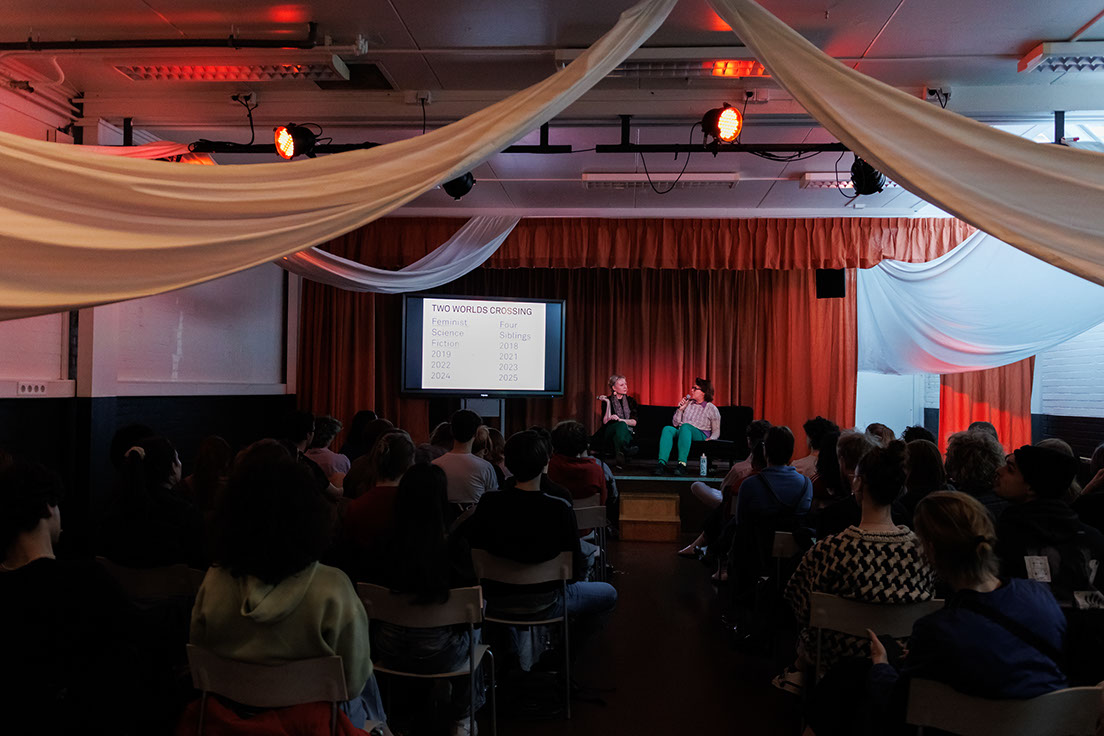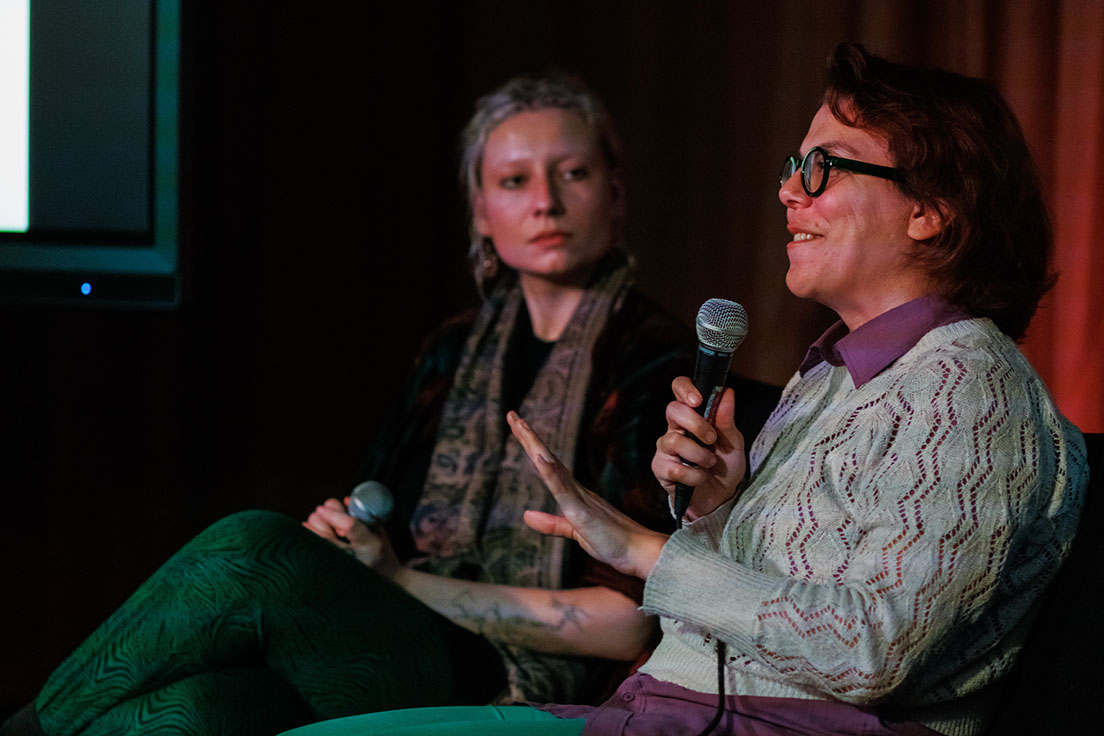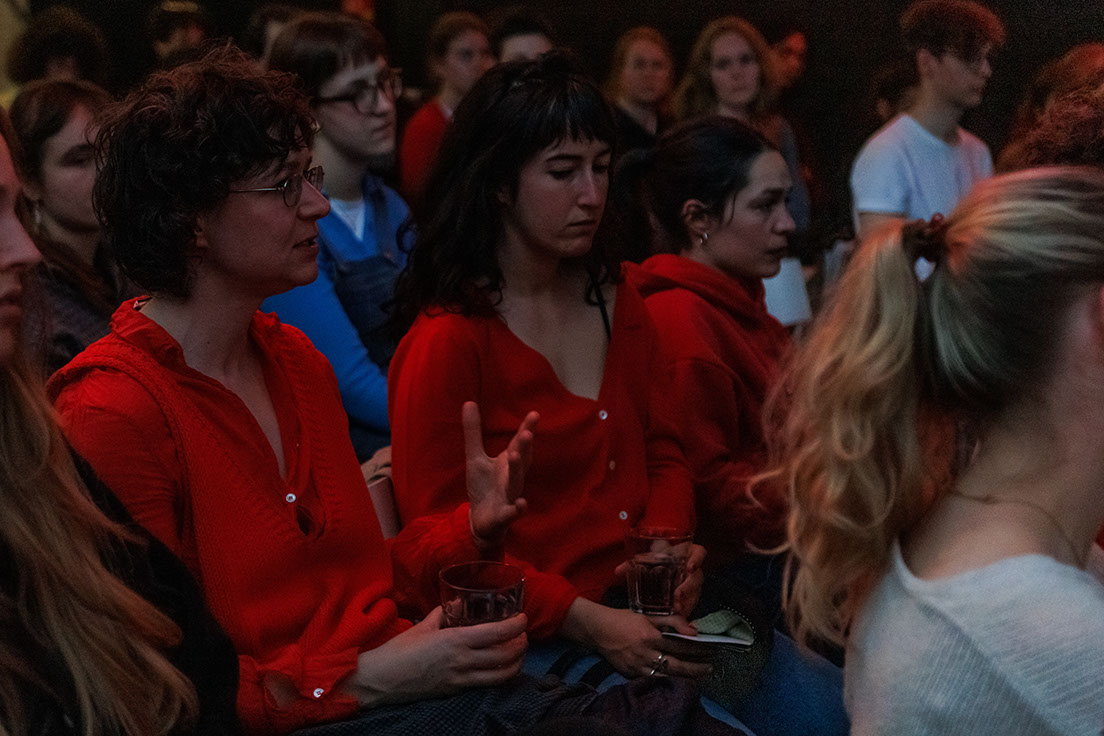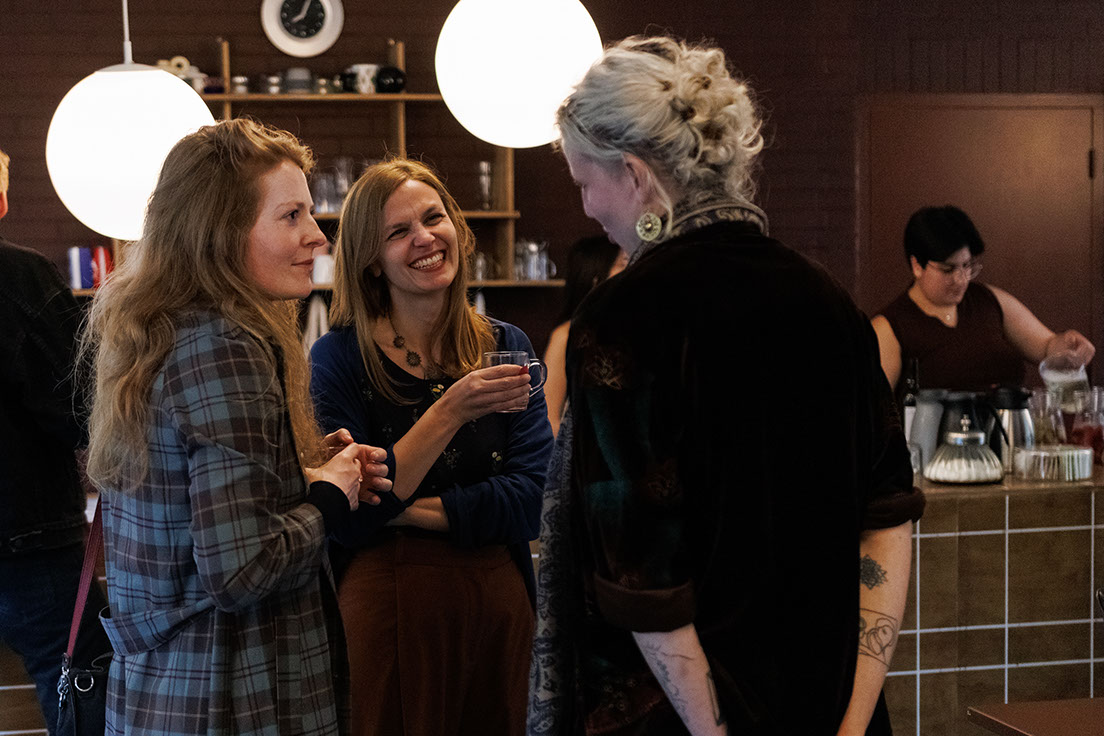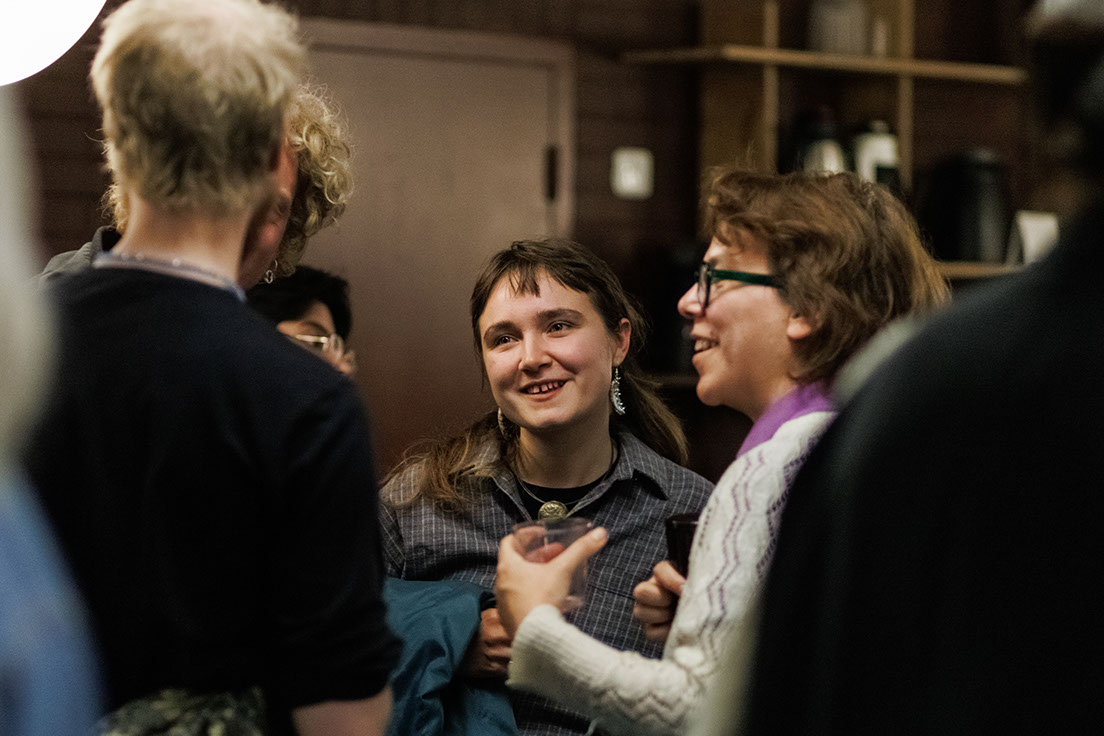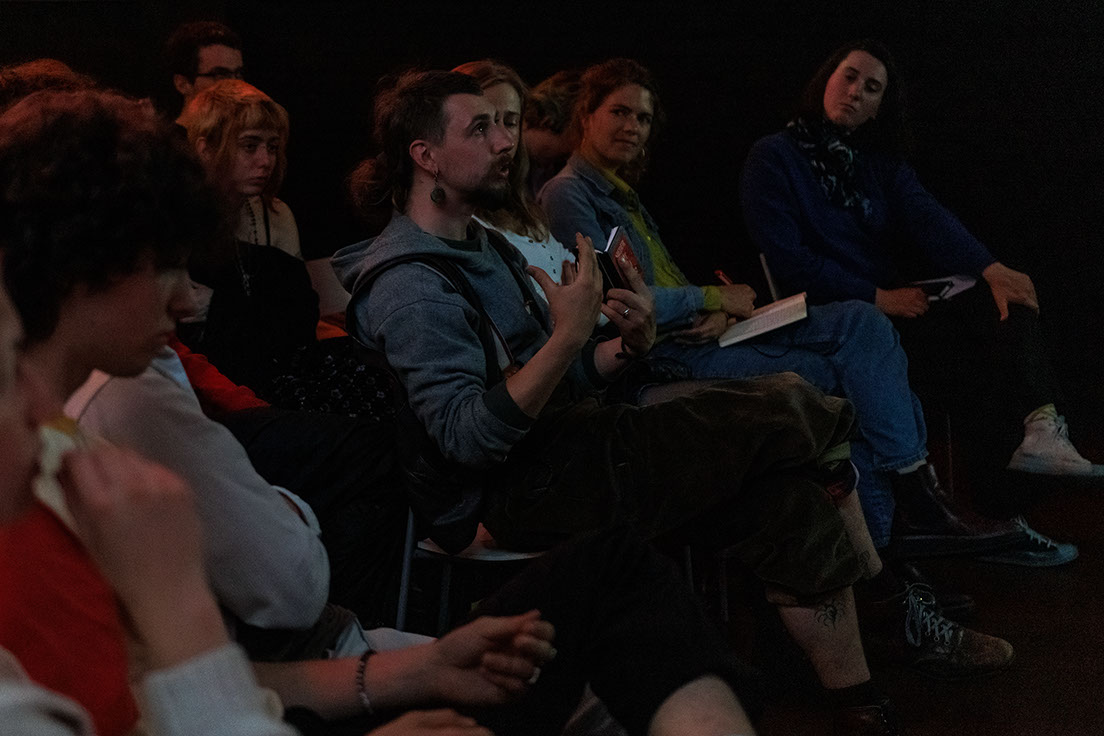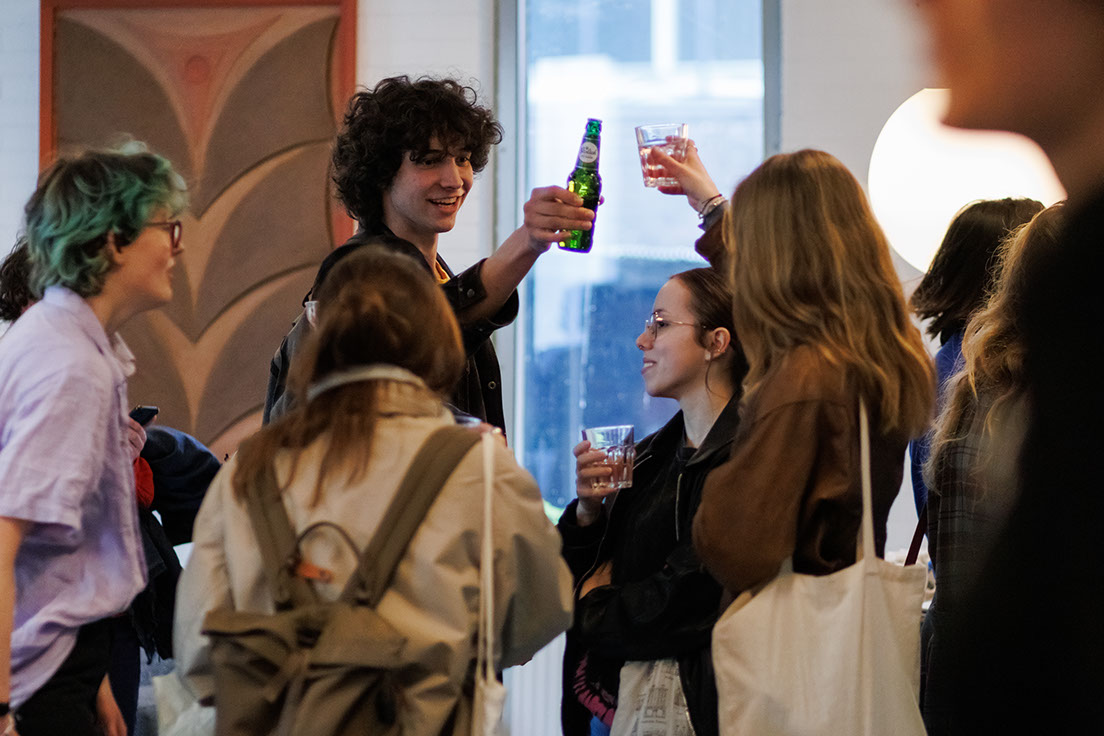MENU
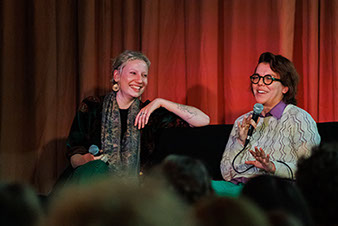
photos: Emma Spannenberg
cultivating feminist fictions for protection
a recap of the artist talk with Müge Yilmaz (May 8, 2024)
by Andrea Romero
May 19, 2024
During the fifth studium resort, we conversated with Müge Yilmaz,
an artist
who,
inspired by FEMINIST SCIENCE-FICTION,
creates immersive atmospheres
>>through performances, photographs and installations,<<
↓
The performance has a story,
but for her,
there is not specific visualization.
Müge believes that reading feminist science-fiction is not only about reading.
It requires the active engagement of the readers’ inner imagination.
Unlike movies,
― that provide already-made images ―
it allows the readers
to visualize and imagine
the story in their minds.
This approach informs her methodology for her artistic research,
which involves translating
from the text >> to imagination
>> then,
mind-jump into the real world
>> there is a new space.
it is ‘a reversal experience of reading science-fiction.’
With her work,
one can imagine a story,
ask questions.
Müge employs the strategy of time-projection,
― commonly embraced by writers ―
to seek for inspiring images in the past,
without romanticising them.
>>Through this process, she finds that
TIME, HISTORY,
IDENTITY,
RELIGION, MONEY,
GENDER BINARIES,
are also ‘invented’ fictions,
stories that are real,
because they are collective,
because we all believe in them.
Although she recognises there is a conventional way of thinking,
she also acknowledges that it can be harmful
and limiting.
But it changes,
‘much more quick than we think.’
This is what leads Müge to envision potential futures,
to create fictional speculations on preservation and scarcity.
‘The root,’
she says,
‘is in the connection between AGRICULTURE and ART’
‘Things born,
they are
and then,
they decompose.’
art
is also not static,
it happens,
it is a ritual,
a collective memory.
This defines the core of the community project
FOUR SIBLINGS,
a public garden in Amsterdam,
co-initiated by Müge alongside The Beach Osdorp
‘It was born from a desire,
for direct experiences of nature rather than representations of nature.’
In 2021, the field grew into a labyrinth,
that served as a space for art,
social gatherings,
performances and
a day-long festival,
where musicians, birds and other guests alike
cooked and ate together
the food that had been grown there.
↓
Inspired by companion farming,
(a method of growing together three mutually supportive plants)
>> They made a drawing with soil and seeds.
Sometimes the plan did not grow,
but they kept observing the field.
This allowed them to ‘learn by doing.’
For her,
when we approach the land with attention,
time seems to slow down,
because Earth’s time is different.
This fosters a deeper connection with the land,
prompting a deeper understanding,
a shift towards non-human thinking,
inviting for rituals.
‘love the land, and the land will love you back.’1
When we grow our food, we eat it with gratitude and we care.
Care and love>> extend to a desire to protect.
>> However,
making a garden is not always ‘cute and happy.’
It can bring struggles,
and sometimes leads to conflict.
Müge explains that
this perception
stems from a superficial understanding
which tends to infantilize and romanticize the process,
and results from a patriarchal projection.
Post-humanism
is the ‘reversal experience.’
The experience from those who are not part of the canon:
the colonised,
the woman,
the land.
Through her practice,
Müge Yilmaz invites us to rethink the fictions that make our reality and to reimagine our relationship with the land and the world around us: to cultivate feminist fictions for protection.
––––––
1. Quote by Robin Wall Kimmerer
this artist talk was in collaboration with University of Groningen – Art History departement
about
Andrea Romero (1999, Spain) is currently studying Curatorial Studies (University of Groningen, master Art History)
In her work, Müge Yilmaz examines the paradoxes around the concept of protection with focus on community, survival and belief (faith). Through performances, photographs and installations she creates immersive atmospheres inspired by feminist science-fiction. Following the concept of three ecologies for observing the mental (subjective), societal and environmental developments in a parallel method, she uses image and performance as tools for envisioning potential futures. By keeping protection as a common denominator, her research creates speculations on preservation and scarcity. She constantly looks for trigger points in shape of visual manifestations that provoke subconscious reactions and reflexes. www.mugeyilmaz.com
